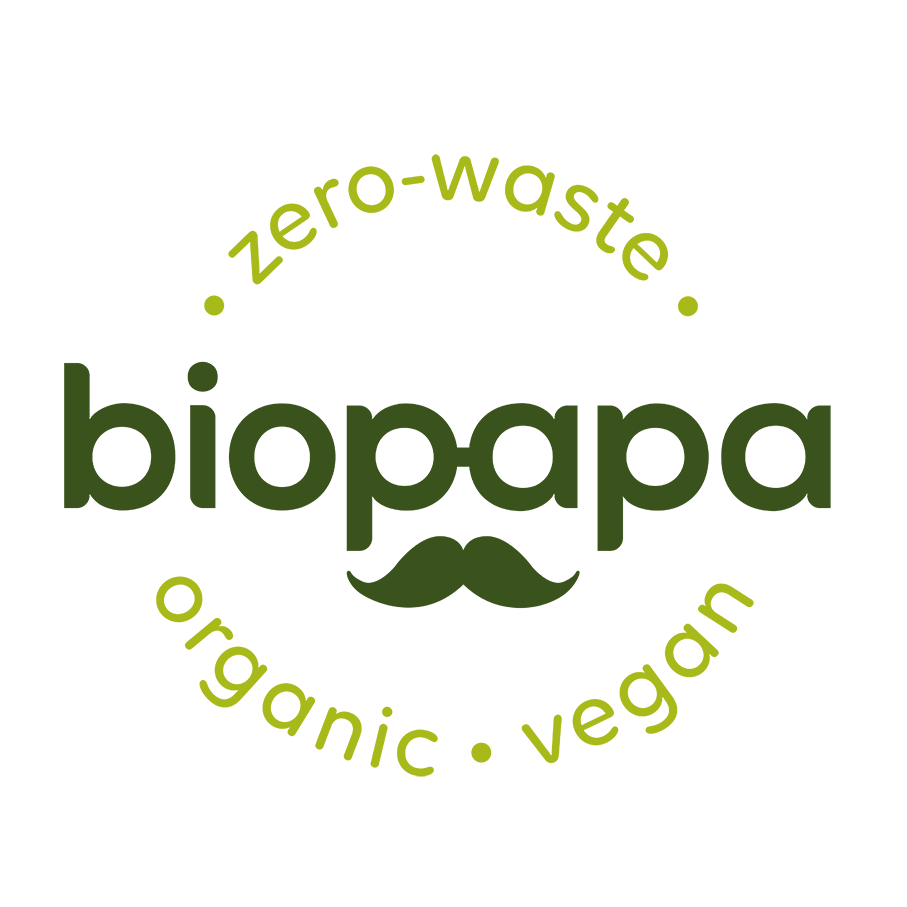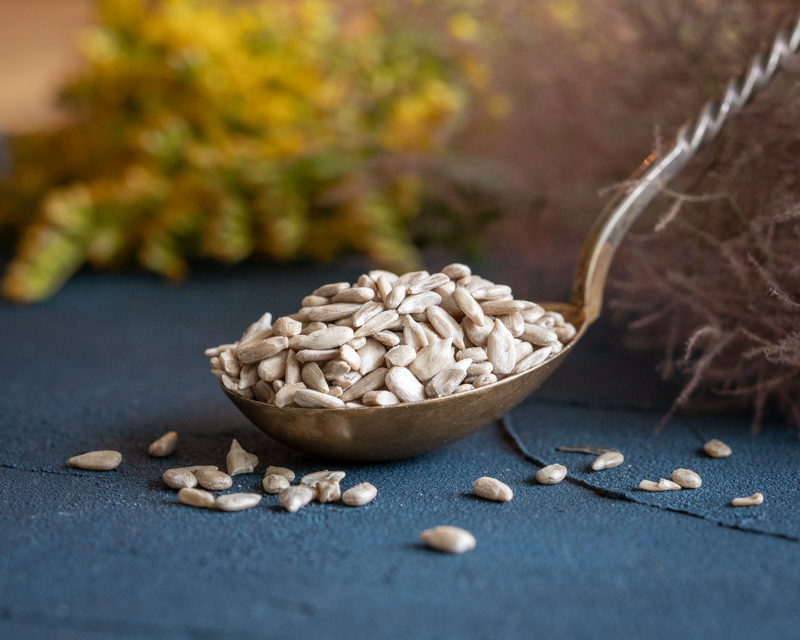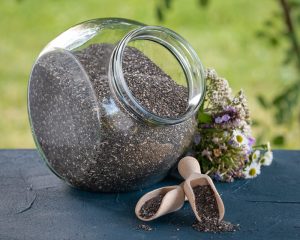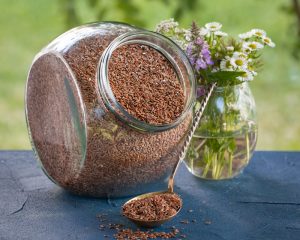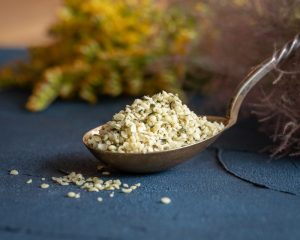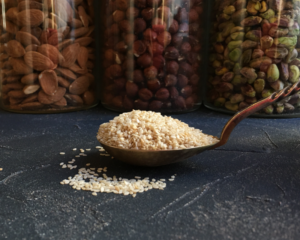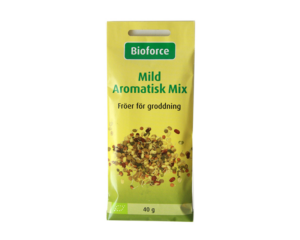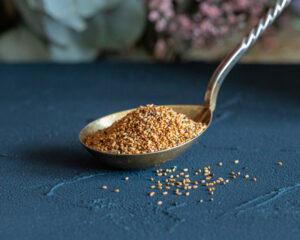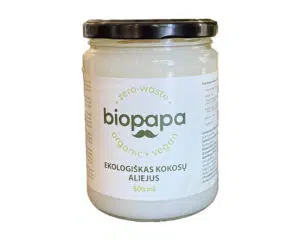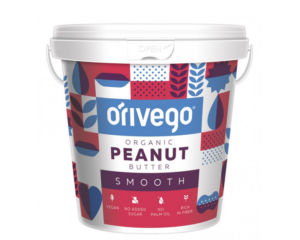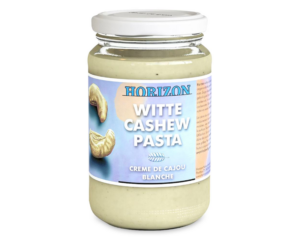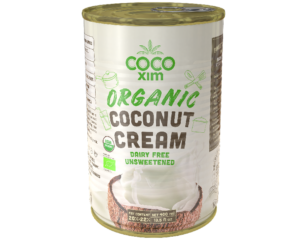Shelled organic sunflower seeds
From 1.00€
Sunflower seeds are a real treasure trove of nutrients. They are rich in essential nutrients, including vitamins E and B, magnesium, phosphorus and selenium. Vitamin E, a powerful antioxidant, plays an important role in protecting cells from oxidative damage, while B vitamins contribute to energy metabolism. These seeds are also an excellent source of unsaturated fats, especially linoleic acid, which is beneficial for heart health. The composition of these nutrients helps reduce inflammation, supports heart health by potentially lowering cholesterol and blood pressure, and helps regulate blood sugar, making sunflower seeds a good snack for diabetics. In addition, the high fibre content promotes digestion and the presence of selenium strengthens the immune system.
Adding sunflower seeds to your diet is easy. They can be enjoyed as a nutritious snack, roasted and seasoned to taste. These seeds add a nice crunch and nutritional value to salads, baked goods such as bread and muffins, and can be mixed into a dry breakfast or muesli. They’re also great in smoothies or as an accompaniment to porridge.
As an alternative to nut butters, sunflower seeds can be pureed into a smooth spreadable cream that makes a great vegan sauce.
In cooking, they can be used in vegetable dishes and stews.
Ground sunflower seeds can be used as a partial substitute for flour in various recipes. Due to the high calorie content of sunflower seeds, it is important to enjoy them in moderation, especially for those who are watching their weight.
NB! The information provided here should not be interpreted as a recommendation for treatment or other types of health problems. We recommend that you make personal health decisions after evaluating different sources of information.
100% organic sunflower seeds
Energy value 2668 kJ / 644 kcal
Fats 52 g
- of which saturated fatty acids 4,5 g
Carbohydrates 20 g
- of which sugars 2,6 g
Fibre 8,6 g
Protein 21 g
Salt 0,02 g
Store in a cool, dry place.
